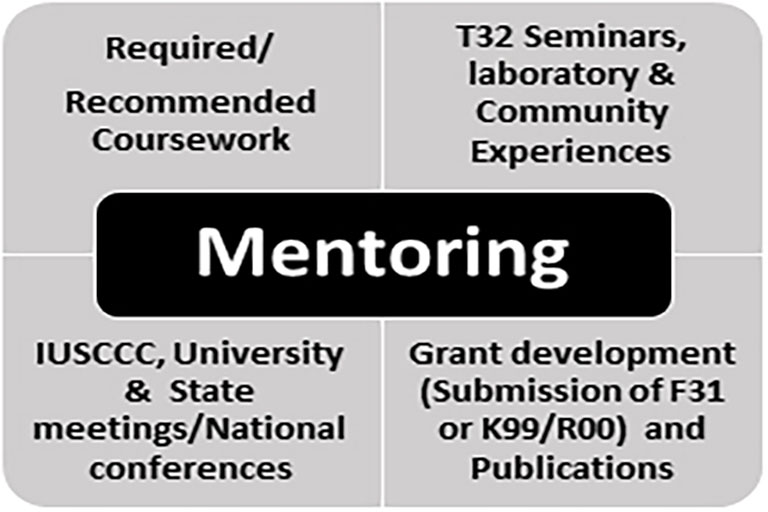Developing the next generation of cancer prevention and control scientists
The goal of this National Cancer Institute-funded T32 program is to prepare predoctoral and postdoctoral fellows from various disciplines to become independent cancer prevention and control researchers. Your research will reduce cancer morbidity and mortality across populations, including the underserved.
We seek to develop the next generation of cancer prevention and control scientists who:
- Reflect the various experiences and perspectives of our state and nation.
- Understand the importance of addressing quality health outcomes for cancer risk and treatment.
- Believe in team science and the need for a transdisciplinary approach to cancer prevention and control science.





